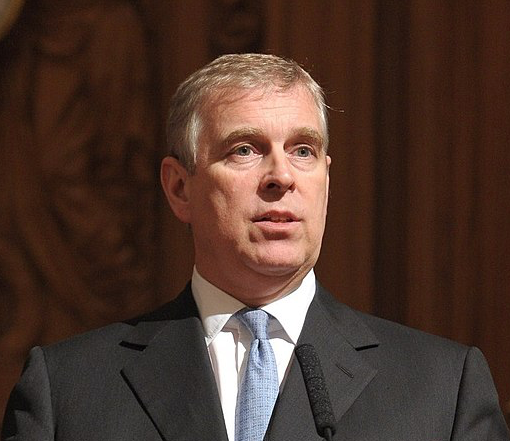The Prince Andrew Charitable Trust breached charity law by making payments worth more than £350,000 to one of its trustees, the Charity Commission has revealed.
The trust, which works to support the Duke of York's charitable work in the areas of education, entrepreneurship, science, technology and engineering, was investigated by the regulator following publicity surrounding the prince's involvement with Jeffrey Epstein.
Prince Andrew came under scrutiny after being interviewed by BBC Newsnight about his friendship with the disgraced financier and convicted paedophile, which raised concerns about his role in the public eye.
A subsequent inquiry into the prince's charity found a former trustee had been paid by the charity’s three trading subsidiary companies as a director of those companies.
The former trustee was an employee of the Duke of York’s household and from April 2015 to January 2020, undertook work for the trading subsidiaries.
Prince Andrew's household was then reimbursed for a proportion of this employee’s time by the subsidiaries after the year end. These payments totalled £355,297.
Trustees cannot currently be paid to act as directors of a subsidiary company, unless there is authority from the charity's governing document or the payments are authorised by the regulator or the court. None of these were in place at the charity at the time.
The regulator concluded the charity had breached charity law and it was required to return the full sum of money back to the charity to be distributed towards causes in-line with the charity's purposes.
Trustees 'acted to rectify this matter once it was identified', the regulator said, and the money has now been returned.
However, proactive examination of the charity’s accounts and records at the time identified other issues of concern that required further attention, including a lack of 'open and fair' competition when the trustee was appointed to the role.
Furthermore, no evidence was obtained to demonstrate that these payments to the trustee provided 'value for money' for the charity.
The charity has now notified the commission of its intention to wind up. The remaining charitable funds will be distributed to other charities with similar objects and the charity will request to be removed from the register once this is complete.
The regulator said the board was 'expected to have had the knowledge and experience to act in accordance with charity law', given one of the trustees is a lawyer.
“Charity is special – with unpaid trusteeship a defining characteristic of the sector. By allowing the payment of a trustee via its subsidiaries the Prince Andrew Charitable Trust breached charity law and by insufficiently managing the resulting conflict of interest from this payment the trustees did not demonstrate the behaviour expected of them," the regulator's director of operations, Helen Earner said.
“We’re glad that concerns we identified are now resolved, after the charity acted quickly and efficiently to rectify these matters. The recovered funds will now go towards the causes intended, and we will continue to work with the trustees as they wind up the charity.”
Latest News
-
Businesses take on 40% of costs to run charity’s £3m ‘state of the art’ youth centre
-
‘Rebirth’ plans for defunct youth charity unveiled
-
NCVO CEO to lead Shelter
-
Starting point for using AI 'has to be your legal duties', expert warns charities
-
'Waxing lyrical about volunteering' among young people pays off, research finds
-
Children’s charity appoints first head of fundraising.
Charity Times video Q&A: In conversation with Hilda Hayo, CEO of Dementia UK
Charity Times editor, Lauren Weymouth, is joined by Dementia UK CEO, Hilda Hayo to discuss why the charity receives such high workplace satisfaction results, what a positive working culture looks like and the importance of lived experience among staff. The pair talk about challenges facing the charity, the impact felt by the pandemic and how it's striving to overcome obstacles and continue to be a highly impactful organisation for anybody affected by dementia.
Charity Times Awards 2023
Mitigating risk and reducing claims

The cost-of-living crisis is impacting charities in a number of ways, including the risks they take. Endsleigh Insurance’s* senior risk management consultant Scott Crichton joins Charity Times to discuss the ramifications of prioritising certain types of risk over others, the financial implications risk can have if not managed properly, and tips for charities to help manage those risks.
* Coming soon… Howden, the new name for Endsleigh.
* Coming soon… Howden, the new name for Endsleigh.
Better Society

© 2021 Perspective Publishing Privacy & Cookies










Recent Stories